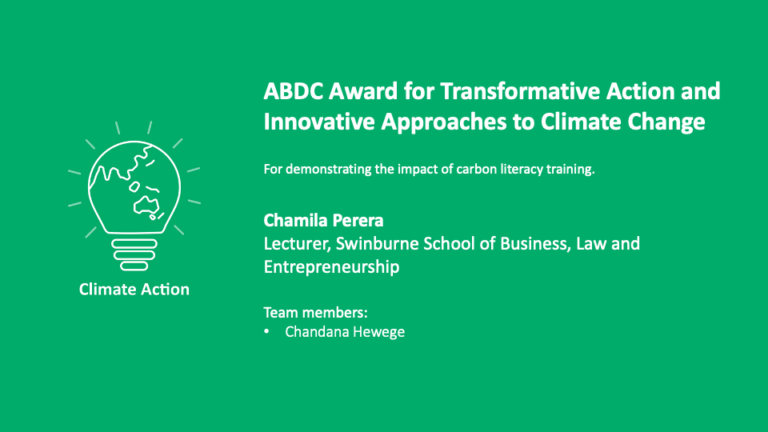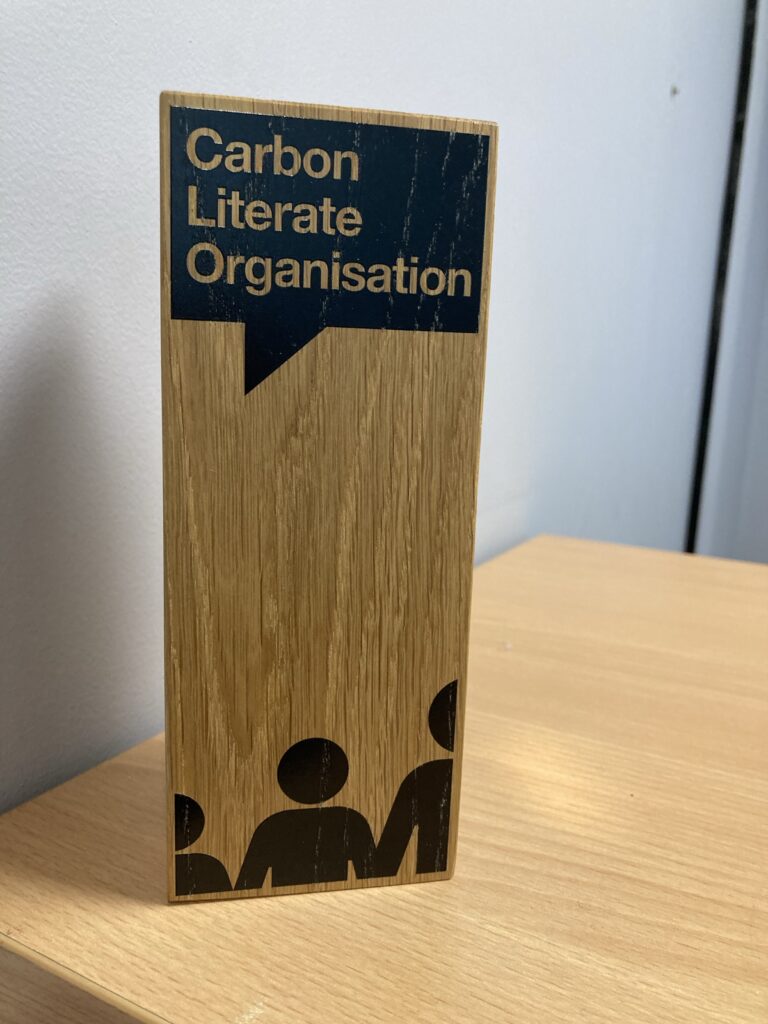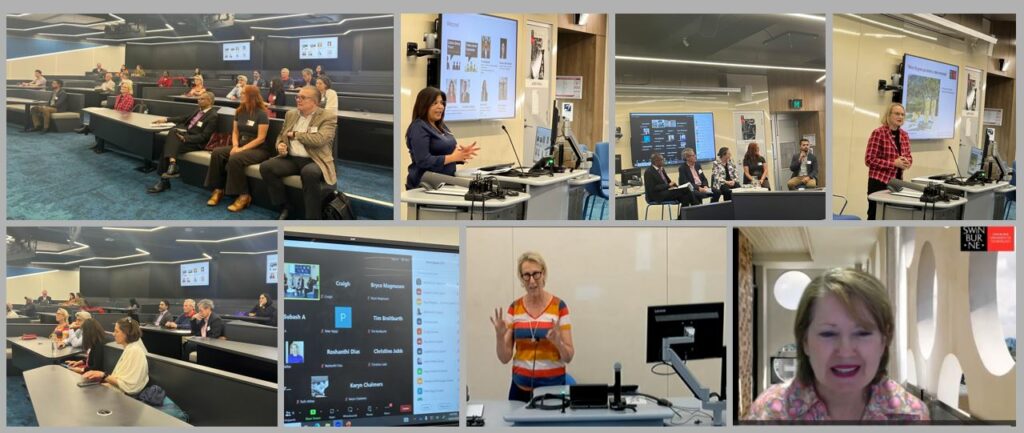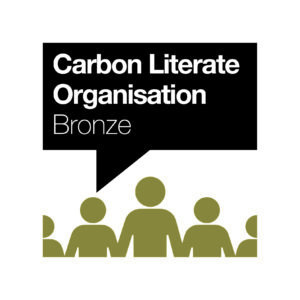2023 Network Awards – Climate Action

Judges comments
Chamila’s team has shown the role of the Carbon Literacy Training (CLT) program in emissions reductions and developing strategic action through business school and university practices.
The team’s partnerships with other business schools, students, business professionals and local government were notable.
Significantly, Chamila’s leadership of this partnership approach contributes to the ABDC collegiate mission generally and the declaration on climate action in providing the foundation of climate literacy which can underpin educational standards, research, and collaboration.
The initiative
In line with the CLT delivery model designed by the University of Queensland, the training is organised into four live sessions of 90 minutes each, 120 minutes of self-study modules and an assessment pledge.
The training accommodates participants’ busy schedules by running online after working hours. Sufficient gaps between sessions give time for the participants to review and reflect on the self-study modules.
Collaborative Padlet and a dedicated email contact keep the conversations live among the participants during the training. These are accompanied by pre-and post-CLT surveys, action readiness surveys and the pledge measuring participants’ engagement.
The CLT’s LinkedIn page tracks the post-CLT engagement of participants.
The CLT is scaffolded to cover a wide range of climate change topics.
It shocks participants before empowering them to take action. By introducing new viewpoints, the CLT innovatively addresses issues and the action paralysis many individuals face when trying to understand the complexity of climate action.
Promoting positive grassroots-level actions results in many participants making climate action pledges that spill over to impact co-workers.
These include integrating climate change into curricula, industry-linked projects, work-integrated learning, sustainable procurement and community gardens, and carbon neutrality initiatives.

How it works
The team mobilises grassroots-level climate actions by effectively delivering CLT to business school students and staff.
The transformative learning empowers participants to move beyond climate change awareness. It includes many emotional and behavioural enablers that make participants pledge impactful climate actions, individually and collectively, after the training.
A group of volunteer academics pioneered CLT delivery at Swinburne Business School in 2021. It was the first programme of its kind in Victoria.
The original short training module, which fits smoothly into the vibrant working climate of a business school, has gained attention beyond the broader university community.
During the past three years, it has inspired many participants — including strategic decision makers, academic and professional staff-team leaders and student leaders — to become carbon literate through the CLT accreditation of the Carbon Literacy Project (CLP), UK.
The pioneering effort has expanded into a collaboration between Swinburne, Federation and Deakin Universities.
Six rollouts of the CLT training have produced 100 carbon literates whose pledges claim to have saved more than 100 tonnes of CO2 emissions.
This outcome led to Swinburne Business School being accredited as a bronze-level carbon literate organisation by the CLP. This contributes to the university’s Net Zero Carbon Emission agenda.
The academic group is supporting the ABDC’s Climate Action Declaration by designing a nationwide rollout of the CLT.

Impact
Successful partnerships
Collective agency
- 100 accredited participants representing diverse groups (academics, professional staff and students).
- Six rollouts of CLT since 2021, with 120 participants.
- 86 invited Carbon Literacy Advocates in Australia, a LinkedIn group moderated by carbon literate student leadership.
- 75% of climate action readiness of the participants (CLT surveys).
- 100 tonnes (approx.) of CO2 saving pledged.
- Strategically promoting the CLT to invite key decision makers of business schools and universities to be accredited as carbon literate (e.g., Pro VC Global Engagement, Associate Dean Education, directors of undergraduate programs, university sustainability, procurement, and program coordinators).
The scalability of CLT has been shown by inviting participants and facilitators from two other universities — Federation and Deakin.
The team was asked by the Emerging Leader Program and Work-integrated Learning Director to deliver the training to student leaders.
The CLT team contributes to a working group on Swinburne’s agenda to reach Net Zero by 2025.
In 2023, the CLT went international at the CBS International Business School in Germany.
- Swinburne Business School is awarded as a bronze-level carbon literate organisation. This provides a road map for other business schools to obtain this recognition.
- Invited to embed CLT as an activity of the ABDC working group on climate action and contribute to the ABDC community of practice of taking meaningful action on climate change through business school practices.
- Contributes to the PRME ANZ–NZ chapter, the Australasian Business Ethics Network, the Australian and New Zealand Academy of Management and the Darebin Council Community Council.
- Swinburne’s CLT is accredited by the Carbon Literacy Project, which is one of 100 worldwide Transformative Action Programs recognised by the UN at COP21. This global recognition validates the trustworthiness and impact of the initiative.